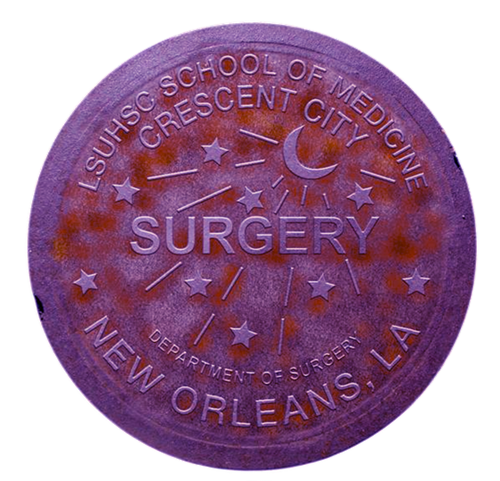Contact Us:
Mary Maluccio, MD, MPH, FACS
Chief, Division of Surgical Oncology
Director, Neuroendocrine Tumor Program
mmaluc@lsuhsc.edu
Yvette Bren Mattison, PhD
Assistant Professor - Research
Neuroendocrine Tumor Program
ymatti@lsuhsc.edu
tel. 504-464-8701
The Neuroendocrine Tumor Program functions as a strategic collaboration between faculty within the Department of Surgery and the East Jefferson Hospital within the LCMC Health System. The largest neuroendocrine program in the country, our faculty influence the care of over 2200 neuroendocrine patients each year and function as the signature neuroendocrine program of the South. Our group, also known as the New Orleans, LA Neuroendocrine Tumor Specialists (NOLANETS) has recently expanded to include The Rare Cancer Program at East Jefferson Hospital with the goal of utilizing the sophisticated infrastructure of the NOLANETS program to care for other disenfranchised patients with rare cancer diagnoses. Our strategy has utilized a multi-disciplinary approach that includes specialists in surgical oncology, medical oncology, radiation oncology, transplantation, nuclear medicine, gastroenterology, and dietetics/nutritional support. With our expansion into other rare cancers, we have new partnerships with urologic oncology, gynecologic oncology, and thoracic oncology to incorporate efforts for patients with female and male germ cell tumors, adrenal tumors, subtypes of uterine and ovarian cancers, sarcomas, and rare subtypes of lung cancer. With over 70 years of combined experience, our staff works with referring physicians and their patients to help diagnose and manage patients from Arkansas, Oklahoma, Louisiana, East Texas, Mississippi, Alabama and parts of Georgia and the Florida panhandle.
Specialists
Mary Maluccio, MD, MPH, FACS
Professor of Surgery
James D. Rives Professor of Surgery and Neurosciences
Chief, Division of Surgical Oncology
LSUHSC Department of Surgery
Director of the Neuroendocrine Tumor Program (NOLANETS) and
The Rare Cancer Program
East Jefferson Hospital
Philip Boudreaux, M.D. FACS
Professor of Surgery
LSUHSC Department of Surgery
Ramcharan Thiagarajan, M.B.B.S., FACS
Professor of Clinical Surgery
LSUHSC Department of Surgery
Daniel Raines, MD, FACG
Associate Professor of Clinical Medicine
G. Gordon McHardy Endowed Chair in Gastroenterology
Chief of Gastroenterology
Yvette Mattison, PhD
Assistant Professor - Research
Director of Clinical Research
N. James Skill, PhD
Assistant Professor of Research
Director of Translational Research
Faculty - Department of Integrated Oncology
Services
We are a comprehensive multidisciplinary group that offers surgical and non-surgical treatments for patients with rare cancers. The integrated research program includes a Director of Clinical research who is responsible for securing and administrating several investigator-initiated and industry sponsored clinical trials. We also have a Director of Translational Research within the Cancer Service Line who works with regional and national collaborators on bench to bedside research projects, consortium database projects, and bio acquisition protocols that fuel our tumor and biofluid bank. Our group is actively involved in the development of novel therapeutic agents and performs multi “omics” analyses to investigate biomarkers of response to treatment and identify unique treatments (personalized medicine) appropriate for subsets of patient. We hold thirteen patents in the field of endocrine oncology and have authored over 200 peer reviewed publications.
In addition to our work within the Southern Region, we work closely with other national neuroendocrine subspecialty programs to improve patient access to clinical trials, we partner with regional and national patient advocacy groups, and we have sponsored multiple regional and national NET patient conferences which highlight the current treatments options for patients. During the pandemic our faculty built a robust network of non-neuroendocrine subspecialists within our catchment area who are now key clinical partners for neuroendocrine patients needing follow up closer to home.


.png?10/18/2022%2011:46:35%20am)
